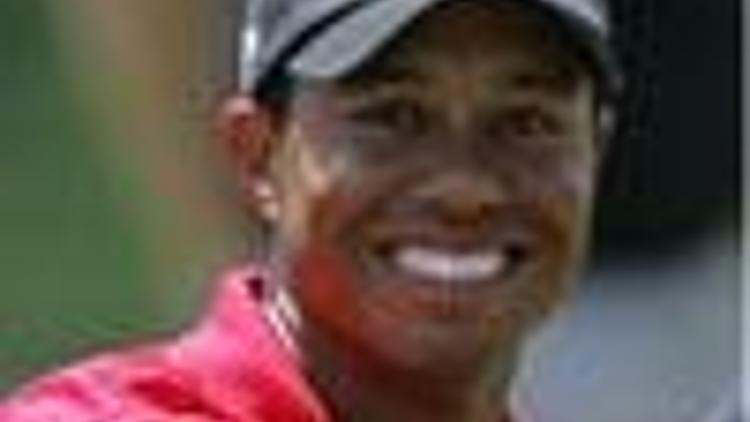Woods-GM split a warning for athletes
Güncelleme Tarihi:

WASHINGTON - Every industry may have its ups and downs but the alarm bells may be ringing if one of the most marketable athletes in the world ends one of the most lucrative sponsorship deals ever. When golf’s numbr one player Tiger Woods mutually ended his nine-year relationship with General Motors this week, it offered yet another snapshot of how badly the American economy has deteriorated
When Tiger Woods mutually ended his nine-year relationship with General Motors this week, it offered yet another snapshot of how badly the American economy has deteriorated.
Woods is one of the world's most marketable athletes with an estimated $100 million in endorsements a year. If his agreement with one of the world's most active sports sponsors dissolved, some experts wonder if any endorsement or sponsorship deal is really ironclad in these tough times.
"The real story here isn't Tiger," says Marc Ganis, the president of Sportscorp Ltd., a Chicago-based sports consulting firm. "It's the [U.S.] auto industry. There are a lot of parties who are going to have some difficulties finding sponsors to substitute for what the auto industry used to provide."
The NBA's LeBron James ($28 million in endorsements according to Sports Illustrated's 2007 figures), Roger Federer ($20 million) and those in the top-circle elite don't have so much to worry about because, like Woods, they have multiple deals spread over several industries.
As for everyone else - well, Ganis believes they will feel the pain. If money from the auto industry and financial world dries up, athletes and events that are lower in the pecking order will get thirsty.
"You've just got to be much more creative," said Evan Morgenstein, an agent for Olympic gymnastics champ Nastia Liukin.
Becoming fidgety
Morgenstein says sponsors have become so fidgety that his phone actually rings more on days the stock market is doing well, less when it's not.
"I think for the first and second quarter of 2009, it's going to be tenuous at best," he said. "It's more about cold calling, contacting people, pitching ideas. There's some stuff that may not actually close, but we've got to look at this as building for the next four years."
Calls to the representatives of about half a dozen top-name athletes and their agents by The Associated Press showed that Woods and those in his stratosphere will have very little trouble making endorsement money, even in a rough economy.
James and Microsoft have ended a two-year marketing partnership, though James' manager, Maverick Carter, did not mention the Microsoft deal this week when he responded to an AP e-mail asking if the economy might hurt James' endorsements.
"We have long-term deals with great partners who aren't going anywhere," Carter said.
James was similarly upbeat.
"I know I have great relationships with the partners that I have," he said. "All of them are long-term deals, so I can only comment on what I have. And looking forward there's always going to be deals out there."
The agents for David Beckham ($48 million, including salary, according to SI) and Maria Sharapova (between $28 million and $30 million) all said their clients were also on solid footing - entrenched in long-range deals, much like the one Woods had with Buick.
"The only thing I have is sponsors trying to get shoots and do stuff with Maria to market her," said Max Eisnebud, Sharapova's agent at IMG, when asked if any of his client's deals might be in jeopardy.
Ganis thinks the future of another hallmark of sports endorsement and sponsorship - the beer industry - could be up in the air. The recent purchase of Anheuser-Busch - makers of Budweiser, Beck's, Stella Artois, and Kirin among others - by InBev will essentially push the Busch family out the door, he says. They were always big proponents of sports advertising and nobody is quite sure how the InBev bosses will approach it.
Ganis also says it's easy to project that the drain on America's biggest businesses will hurt athletes' pocketbooks - not just the endorsement side, but the salary side, too.
How bad will it get?
Cash-strapped companies should be buying less signage in the stadiums, fewer corporate suites and ticket licenses. Credit is no longer as easy to obtain, even for billionaire owners. Meanwhile, the sacred cow of these leagues, TV dollars, could eventually get squeezed if advertising money dries up.
None of it bodes well for cash flow. NFL commissioner Roger Goodell acknowledged he's looking at 2009 as a barometer of how far the bad economy reaches into the NFL.
There also is the issue of the collective-bargaining agreement, which needs to be renewed by February 2010 to avoid a season without a salary cap.
"There's a reasonable chance the NBA and NFL are going to have periods of time when their sports are not playing, unless their players associations get a serious dose of reality," Ganis said. "Owners have decided that continual exponential growth in cheap and available credit are both history, and that they're not going to accept a generally break-even proposition while paying players extraordinary amounts they're paid."
Said Morgenstein: "Those people used to making $12 million sitting on the bench in the NBA, those guys are going to get crushed. The system has to change. They're naive thinking it's not."
Add it all up and it means many athletes are going to have to rethink their strategies for making more money off the field.
How much money is there to be had? That's the multimillion-dollar question.
"We see what's going on in the world, we see what's happening," says Eisenbud, who manages Sharapova. "I don't think any business is immune to what's going on."

